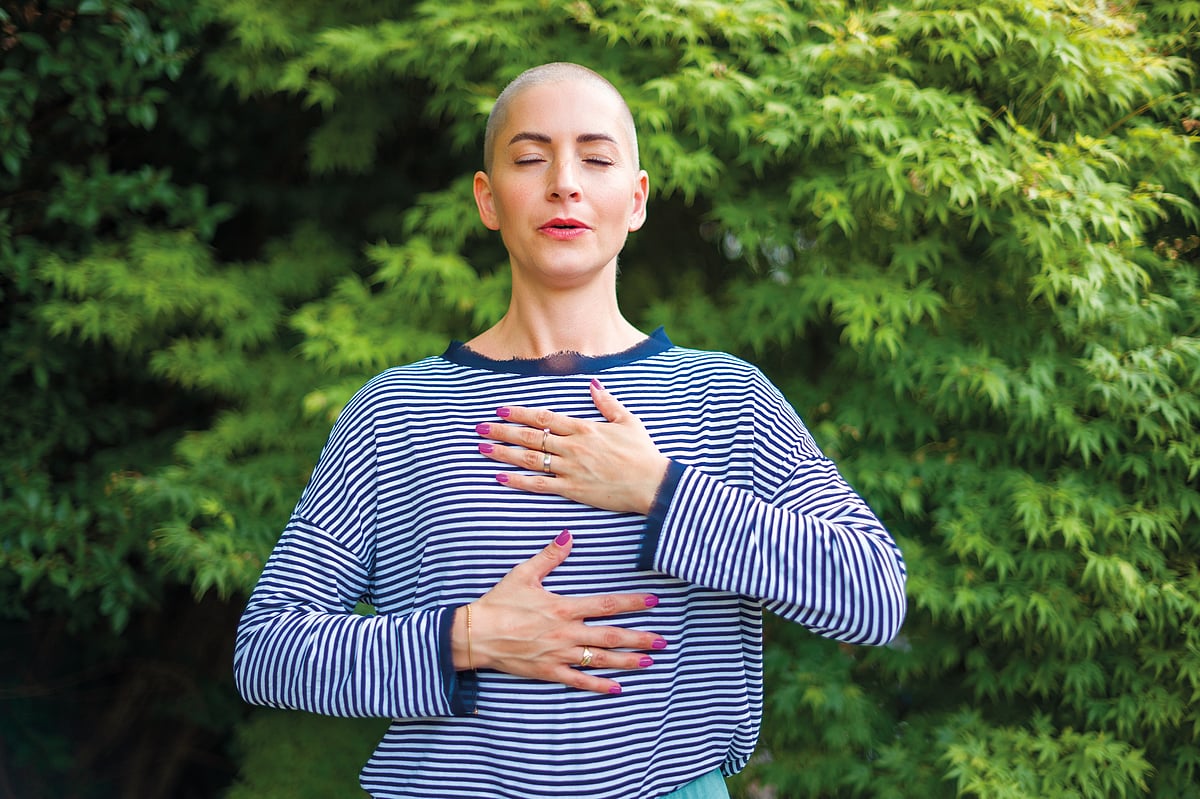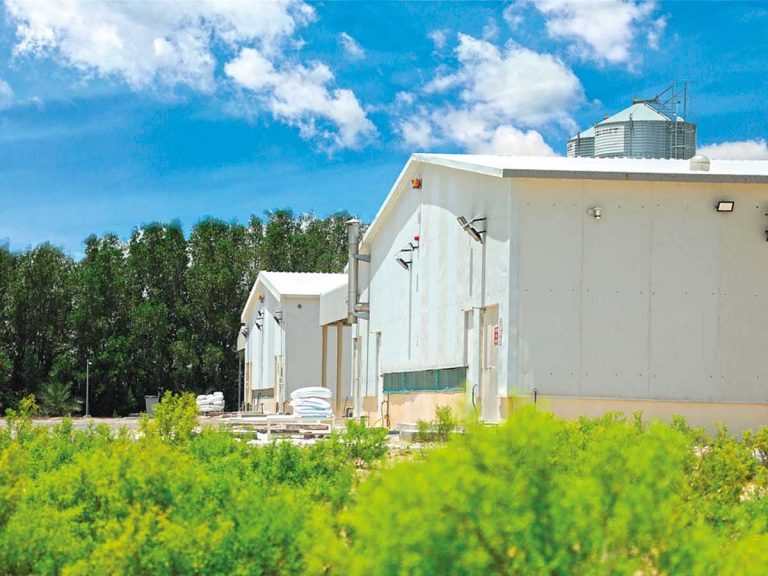Life After Breast Cancer: Embracing Wellness and Strength
The journey following breast cancer treatment is a significant transition for survivors, marking a shift from patient to empowered individual. This phase emphasizes the importance of lifestyle choices that can enhance recovery, prevent recurrence, and improve overall quality of life.
The Importance of Lifestyle Choices
According to Dr. Ahmad Matalkah, a Staff Physician in Breast Surgery at Cleveland Clinic Abu Dhabi, while treatment is crucial for long-term health, prevention strategies are equally vital. “Maintaining a healthy weight, engaging in regular exercise, consuming a diet rich in whole plant-based foods, limiting alcohol intake, and managing stress are all essential components of a survivor’s lifestyle,” he explains. These choices help reduce inflammation, support immune function, and lower the risk of cancer recurrence.
Most survivors can initiate gentle wellness routines shortly after completing treatment, ideally under medical supervision. Dr. Matalkah emphasizes the importance of a coordinated approach involving oncologists, surgeons, rehabilitation specialists, and lifestyle medicine experts. “Starting early, even with small steps, helps rebuild strength and promotes mental well-being,” he adds.
Exercise: A Key Component of Recovery
Dr. Nita Zaji, a Specialist Breast Surgeon at Medcare Women & Children Hospital, highlights the role of physical activity in recovery. Research indicates that engaging in at least 150 minutes of moderate exercise weekly is associated with a reduced risk of breast cancer. Maintaining a healthy body weight, particularly after menopause, is also crucial, as excess weight is linked to a higher risk of developing the disease.
While lifestyle changes alone cannot eliminate the risk of recurrence, they significantly contribute to overall health and resilience. When combined with timely screenings, these habits form a robust defense against breast cancer.
Building a Wellness Routine
Dr. Roshan Koshy Jacob, a Consultant Medical Oncologist at NMC Royal Hospital Sharjah, notes that even modest lifestyle changes can greatly reduce the risk of recurrence. “Just 150 minutes a week of moderate activity, like brisk walking, can make a significant difference,” he states. Coupling this with a balanced, plant-forward diet—rich in fruits, vegetables, and whole grains—provides the body with essential support.
Sleep and stress management are often overlooked but are critical for maintaining hormonal balance and immune function. Dr. Jacob recommends aiming for 7-8 hours of quality sleep and finding effective stress management techniques, such as yoga, journaling, or spending time with loved ones. “These changes not only protect your health but also enhance your overall sense of well-being,” he concludes.
Addressing Post-Treatment Challenges
Despite regaining strength, many survivors experience fatigue and hormonal changes long after treatment. Dr. Matalkah explains that fatigue, weight fluctuations, and hormonal shifts are common post-treatment challenges. “That’s why personalized recovery plans are essential,” he says. These plans often incorporate gradual, low-impact exercises like walking or yoga, alongside anti-inflammatory foods that support hormone balance and energy levels.
Dr. Jacob adds that many survivors can safely transition into structured wellness programs within a few weeks, provided they have medical supervision. Each recovery journey is unique, influenced by the type of treatment received. Ideally, these programs should be overseen by a team familiar with cancer recovery, including oncologists, physiotherapists, and certified fitness or nutrition experts.
Nutrition’s Role in Recovery
Nutrition plays a pivotal role in the recovery process. Dr. Soha Abdelbaky, a Consultant Medical Oncologist at Medcare Hospital Sharjah, emphasizes that treatment can alter metabolism, appetite, and weight. A plant-forward, protein-rich diet, along with antioxidant-rich foods, is encouraged to support recovery and immune function. Key nutrients such as omega-3 fatty acids, vitamin D, and calcium are particularly important for bone and heart health, especially for women undergoing hormone therapy.
Structured wellness should be viewed as a continuation of healing rather than an afterthought. Dr. Keerthi Banavara Ravi, a Consultant Surgical Oncologist at Zulekha Hospital Dubai & Sharjah, suggests that light physical activity, such as gentle walking or yoga, can begin even during treatment if tolerated. “Women who maintain even low-level activity during treatment experience less fatigue, better mood and sleep, faster recovery, and lower long-term recurrence risk,” he states.
After treatment, Dr. Ravi recommends structured wellness programs that integrate exercise, nutrition counseling, and stress management as soon as patients feel ready. He also underscores the importance of maintaining a healthy body weight and adhering to prescribed endocrine therapies. Research shows that women who achieve or maintain a normal BMI post-treatment have a significantly lower risk of recurrence and mortality.
Personalized Survivorship Approaches
Dr. Najeeb Behzad Mohammed, a Specialist Medical Oncologist at Zulekha Hospital Sharjah, identifies fatigue and hormonal fluctuations as common long-term challenges for survivors. These issues may stem from various factors, including anemia, altered metabolism, medication side effects, stress, or disrupted sleep patterns.
His team adopts a personalized survivorship approach, tailoring fitness and nutrition plans to each patient’s treatment history and health status. Non-pharmacologic strategies, such as yoga, mindfulness, and paced breathing, have proven effective in alleviating menopausal symptoms and improving sleep. When necessary, non-hormonal medications may be considered to manage severe symptoms.
Dr. Matalkah emphasizes that the journey toward long-term well-being involves empowering survivors to take control of their health. “With the right guidance, structure, and support, life after cancer can be about thriving, not just surviving,” he asserts.
The Importance of Follow-Up Care
Completing breast cancer treatment brings a sense of relief but also marks the beginning of a new phase—remission. Consistent follow-up and medical monitoring are crucial for early detection of any signs of recurrence and for ensuring that survivors maintain their health in the years to come.
Dr. Matalkah explains that follow-up care typically includes clinical exams every few months during the initial years, followed by less frequent visits over time. Imaging tests are conducted based on individual risk factors, but ongoing check-ins regarding nutrition, emotional health, and stress management are equally important. “Recovery is a long-term journey, and staying connected to your care team is essential for a healthy transition,” he advises.
Dr. Jacob adds that survivorship encompasses more than just being cancer-free; it’s about living well beyond cancer. He recommends a structured follow-up plan that includes physical check-ups every 3–6 months for the first few years, along with annual imaging and periodic blood tests. “Think of it as a wellness check-in, not just a cancer check-up,” he suggests.
Dr. Abdelbaky highlights that survivorship care involves comprehensive, multidisciplinary monitoring beyond initial treatment. This includes routine clinical exams, mammograms, and imaging scheduled according to international guidelines, as well as blood work to monitor hormone and organ health.
Emotional well-being is just as critical as regular medical follow-ups. Dr. Abdelbaky notes that anxiety, depression, and fear of recurrence are common among survivors. Survivorship care should include screening for psychological distress and referrals to counseling, support groups, or cognitive-behavioral therapy when needed.
Dr. Mohammed agrees, stating that survivorship represents the next phase of treatment. His team follows a structured model that includes clinical reviews every 3–6 months, annual imaging, and screening for long-term effects. “This ensures continuity of care and empowers each woman to thrive beyond cancer—not merely survive it,” he concludes.
FAQs
What lifestyle changes can help reduce the risk of breast cancer recurrence?
Maintaining a healthy weight, engaging in regular exercise, eating a balanced diet rich in plant-based foods, limiting alcohol intake, and managing stress are key lifestyle changes that can help reduce the risk of recurrence.
How soon can survivors start exercising after treatment?
Most survivors can begin gentle wellness routines shortly after completing treatment, ideally under medical supervision. Starting with low-impact activities like walking or yoga can be beneficial.
Why is follow-up care important after breast cancer treatment?
Follow-up care is crucial for early detection of any signs of recurrence and for ensuring that survivors maintain their overall health. Regular check-ups and screenings help monitor both physical and emotional well-being.
Conclusion
Life after breast cancer treatment is a transformative journey that emphasizes the importance of wellness and proactive health management. By adopting healthy lifestyle choices, engaging in regular follow-up care, and building a supportive network, survivors can thrive in their new chapter. With the right guidance and resources, the focus can shift from merely surviving to truly living well.
Also Read:
Cleveland Clinic Abu Dhabi Advances Breast Cancer Care







